Hope and Vision: supporting recovery in the community
Hope and Vision Communities provides accommodation and ongoing support for people that have completed residential treatment for addiction.
Hope and Vision Communities provides accommodation and ongoing support for people that have completed residential treatment for addiction.
Charity location
Focus
Grant size
Most people we work with have completed six to 12 months of addiction treatment and have done intensive work on themselves to recover. But when they leave the support and community of a residential setting, there is a high risk of relapsing and returning to old habits to cope with the challenges of life. We support people to continue their recovery journey in the community, start a new life, acquire practical skills, find pathways into employment, and gradually take on more responsibility as they move towards independence.
Our office shares a site with an addiction treatment centre and people who have successfully completed their programme often transition to us. Our key workers meet with the residents on a weekly basis. There’s often a high level of anxiety; going back into the community brings up a lot of feelings that people have been trying to avoid with drugs or alcohol. Our key workers have their own lived experience of addiction recovery that they can utilise to help people get through that stage and sustain their progress.
The spark for founding Hope and Vision Communities came from the journey I'd been on myself as a recovering addict. I'd come to the end of treatment, and I was looking for somewhere suitable to live. There was nothing available and it induced a lot of fear within me. I approached nearly 100 landlords, and everyone said no. Rejection is a big trigger for me, so it was a challenging experience for me to learn how to manage that feeling of rejection. I was fortunate to have people around me to change the way I thought about it, which changed the way I responded to it. I could see there was this massive need for suitable accommodation and ongoing support in the community.
One of the key aspects of Hope and Vision is the concept of "home." We wanted to create a family-like environment, not another institution. Many of us, including the people we support, have experienced systems that didn't work, such as large group homes that feel impersonal. Our houses are for two or three residents, and we invest in the properties to make them feel like a proper home which people can make their own.
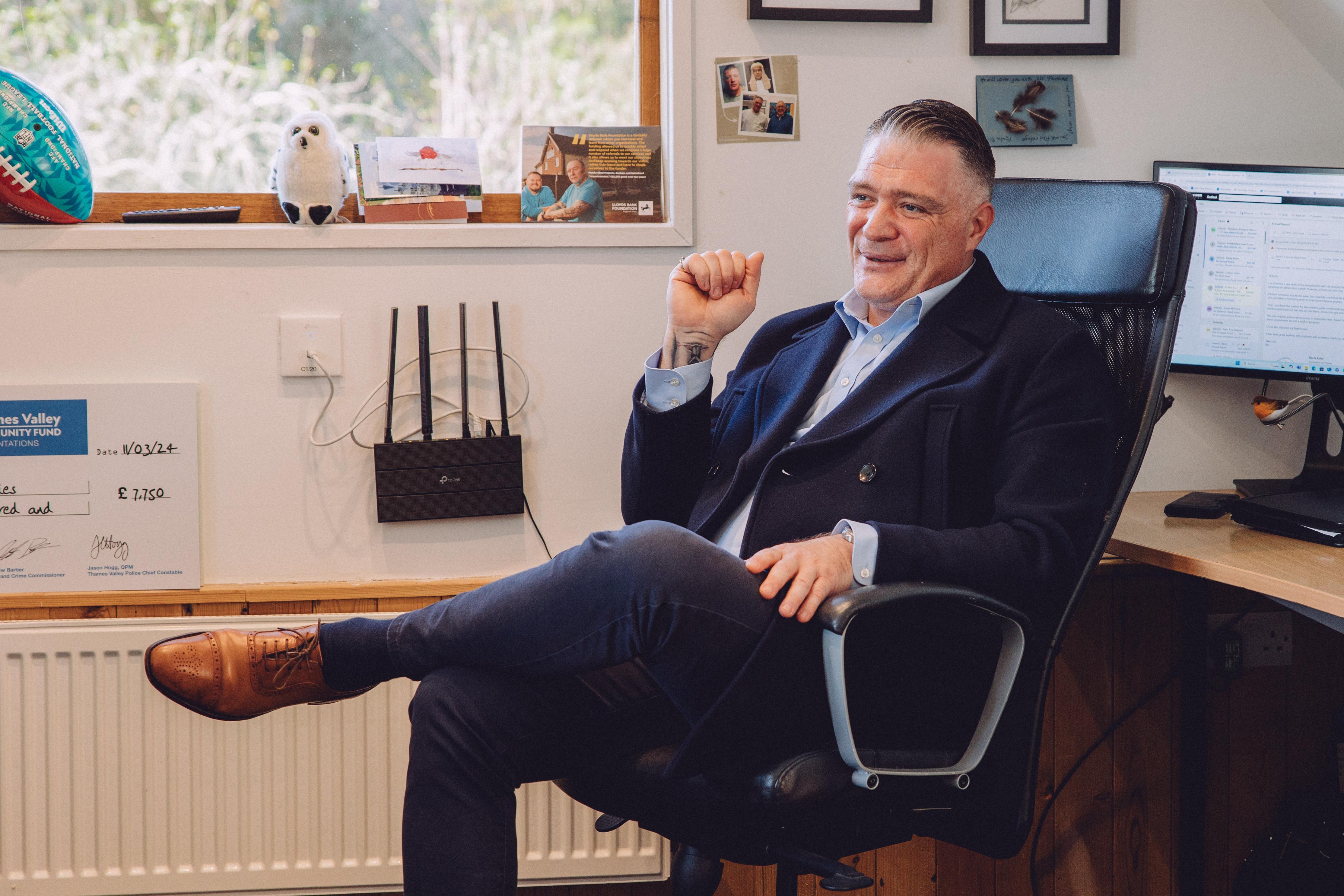
Tony set up Hope and Vision Communities with the support of a judge who had previously sentenced him to prison.
"I spent 15 years in the cycle of addiction and offending, and was labelled a prolific offender. My addiction was the result of unresolved, deep-rooted trauma. A turning point for me was when a judge, Peter Ross, gave me a chance to go to an addiction treatment centre rather than sentencing me to prison again.
Peter had previously sentenced me for a commercial burglary. After being released from prison, my situation got a lot worse. I ended up back in front of Peter again. But I was ready to change. I turned up in court for my sentencing and it was presented to Peter as an option to send me to an addiction treatment centre. He decided to give me a chance, and let me go. The conditions to remain in treatment and do certain things were really tough, but at this point, I'd already made the decision. I'd been stabbed five times, been in multiple car accidents, lost my relationship with my son, lost money and freedom. I was broken and I couldn't take anymore.
"Going through the recovery process, I was able to look at the truth of my journey, feel my feelings, forgive, and take responsibility for my own actions. I wanted to thank Peter for giving me the opportunity to turn my life around. I invited him to the treatment centre and we walked around the grounds, and just spoke to each other man-to-man. At the end of that conversation, I told him I’d got an idea for a charity and asked him if he would be willing to get involved – and he accepted. Peter helped me set up Hope and Vision Communities and is still a trustee today. Our friendship and working partnership is a powerful testimony of how the divisions which often polarise our world can be overcome and used as a force for good."
Our aim is to set people up for a lifetime of being drug free, rather than just for a short period. We give each individual as much time as they need and allow them to make their own decisions as to when and how to move on from our support. There is often an artificial time limit put on addiction treatment that you don't see anywhere else in the health system. Addiction funding is for a set period, and you have to be ‘fixed’ in that time frame, and then you're on your own. The Government invests millions of pounds into treatment services, and then people have the support suddenly cut off at the end which often leads to quick relapse - it’s such a waste.
We are willing to walk with people for as long as it takes. A lot of the recovery process involves working through trauma. We’ve developed coping mechanisms and strategies to survive the challenges in our lives. To unpick that habitual thinking can take years. Removing the stigma of addiction is also important. Addiction is a normal response to trauma and challenge, and so when we share the message that ‘there’s nothing wrong with you’ it helps to remove the burden of shame and condemnation that people are living under. Our approach is to help people deal with the root cause of their addictions first and foremost, and create a space where they feel seen and heard.
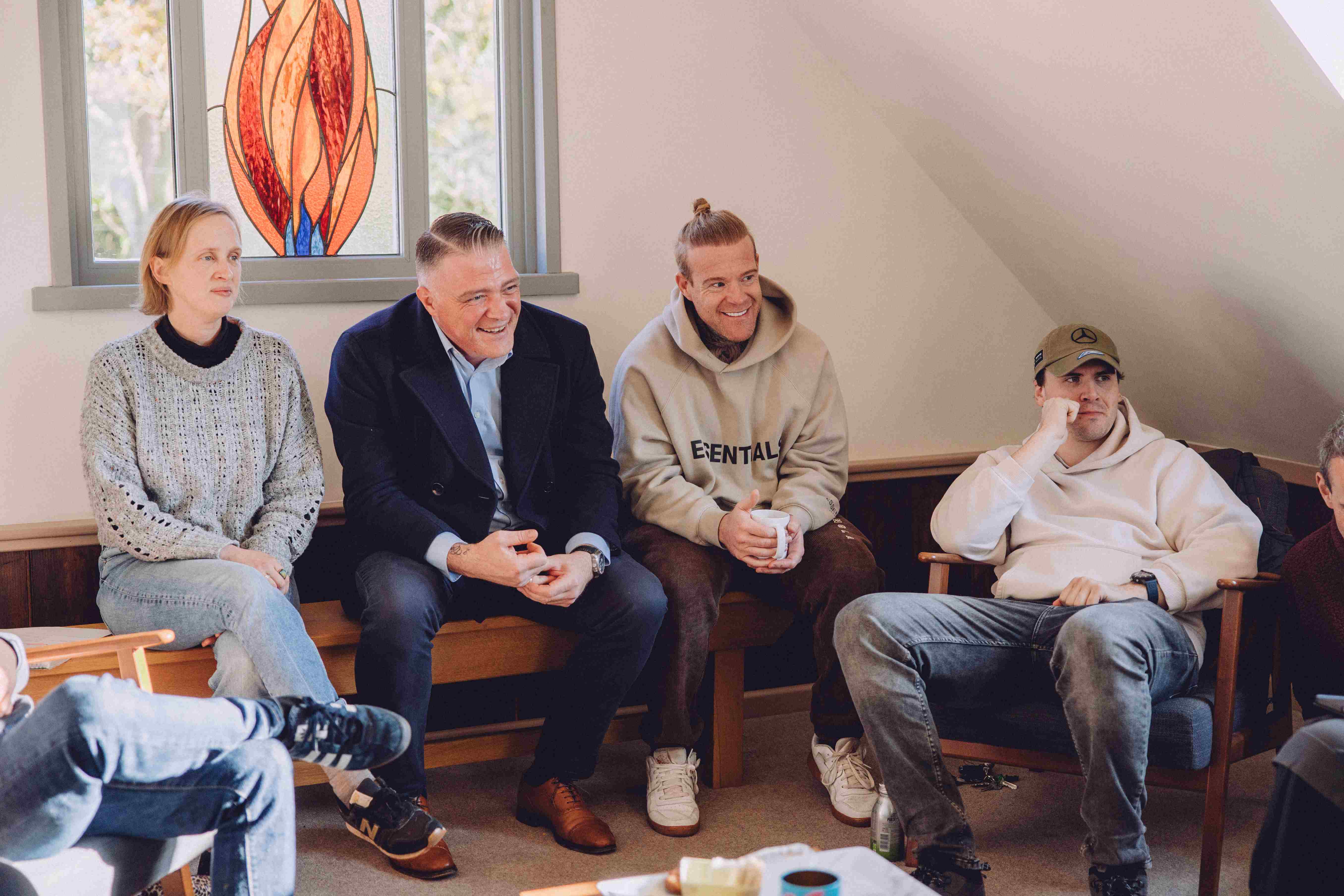
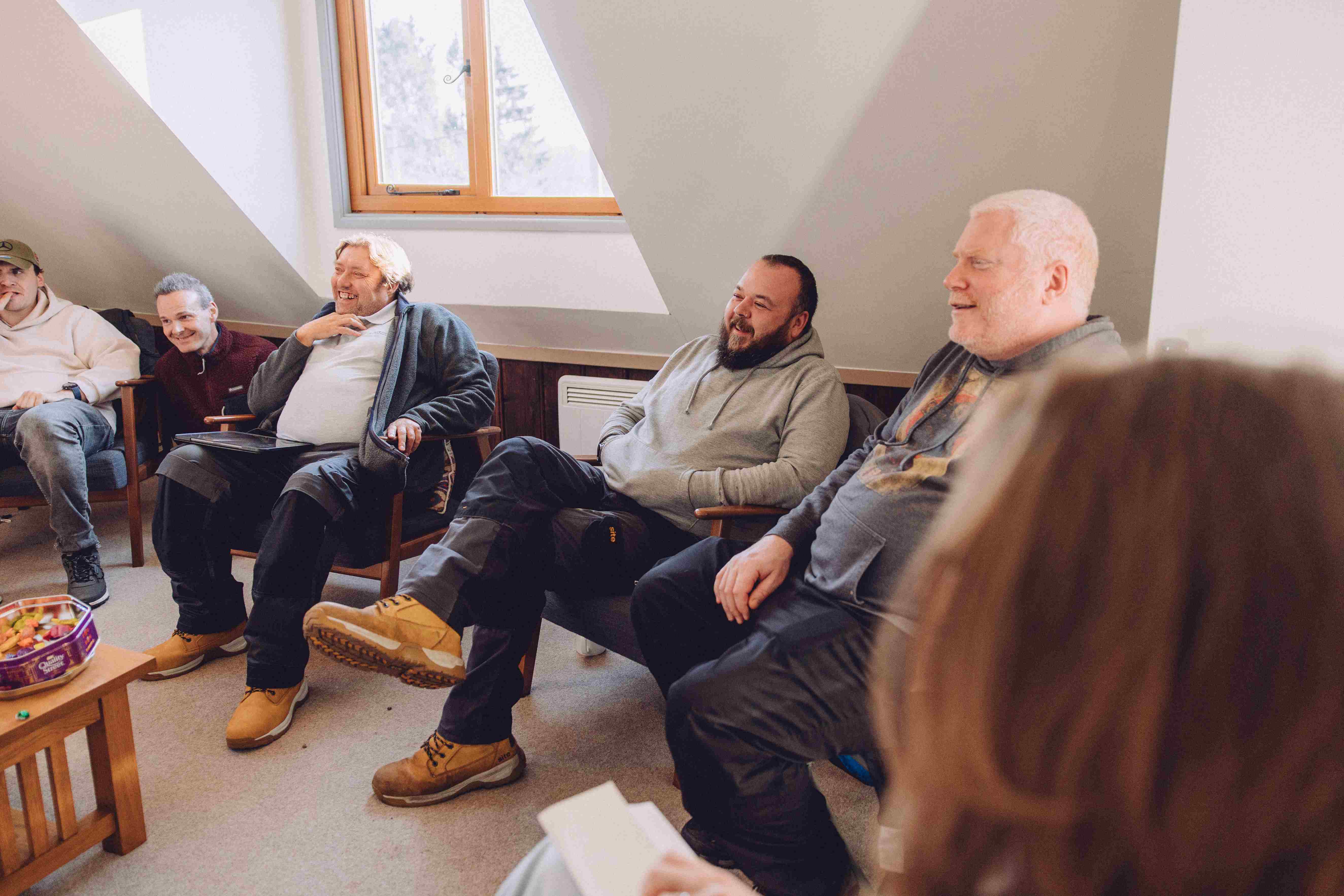
When people leave rehab, they can quickly become isolated. Often, the only place that people can afford to rent is in the ‘wrong’ end of town, and they are surrounded by temptations to go back to drugs and alcohol. We house people in suburban areas with one or two others who are walking the same journey, so they’re not alone. Everyone has regular check-ins with their key worker as well as connecting with others in the Hope and Vision community and attending support groups. Those relationships give people the stability and accountability that they need. They can talk to others who have been through similar things, and they are all on the same journey of finding new ways to live.
It may be difficult from the outside to see the progress that is happening, because it's slow and mostly internal. But if you at people’s life histories, and what they’ve been through and how their lives have changed from being completely chaotic to stable, it’s a huge transition. As each person moves on, they can use their lived experience to help others who are going through the process. We have people at each stage of the journey supporting people who are a few steps behind them, and so our community keeps growing.
We are currently piloting a work programme since we have many jobs that need doing to help maintain our properties such painting, decorating, gardening and landscaping. We support people through the process of setting up as self-employed and filing tax returns, which many of them have never done before. It’s a safe environment to take on more responsibility and accountability. If people make mistakes then there are consequences, but there is no judgement and they are able to learn valuable skills and get work experience. Recently one of our first residents, Leo, has come back to work with us as a key worker so that’s a really encouraging success story.
"I was one of the first residents in the Hope and Vision community houses. Moving from a treatment centre into the community is a challenging experience, and I can see why a lot of people fall at that hurdle. It feels like a huge leap. The ongoing support from Hope and Vision is incredibly important for helping people feel safe. Because when things don't feel safe, and everything feels overwhelming, it’s very easy to slip back into addiction. Feeling supported and being able to take things at a slower pace without the pressure of a time limit is important.
Probably one of the most powerful things that you can witness as a recovering addict, is someone else that's just a bit further on than you in their recovery journey. When I was in rehab, going through a long and drawn out and uncomfortable detox, I could see other people who had been through the same thing looking happy and I couldn’t wait to feel like that. It kept me going.
Now I get to use my experiences to help other people in my role as a key worker at Hope and Vision Communities. That lived experience is important because it helps people relate to you and it adds more power to what you’re saying. Your story can inspire someone and encourage them that they can recover too."
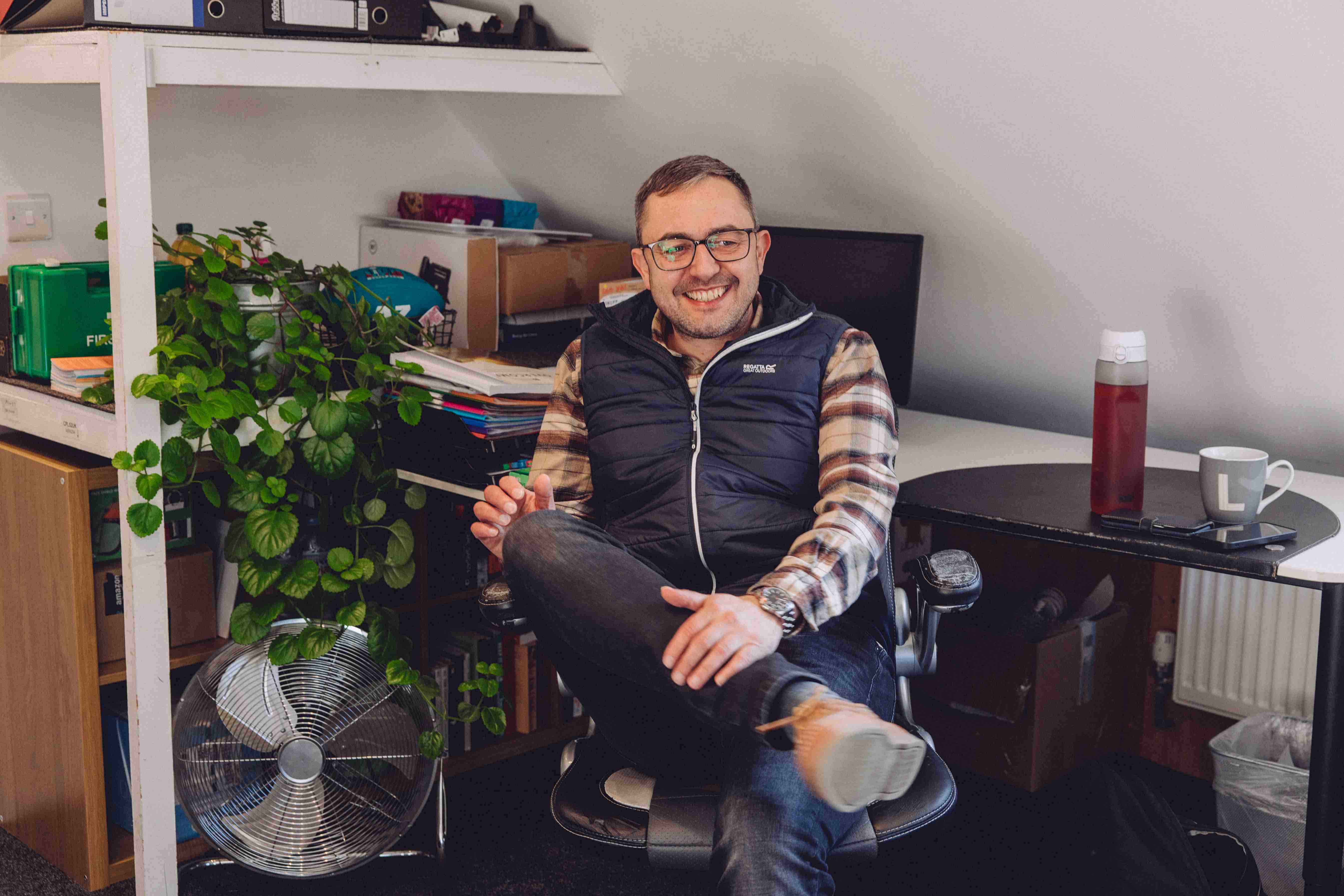
Leo was one of the first residents at Hope and Vision Communities and is now working for the organisation as a key worker.
Hope and Vision has given me a home and a family. I'd lost pretty much everything, and this has given me the time to rebuild my life. Being part of the work programme has helped me grow my confidence and self esteem as well.
- Tom
I look back with gratitude. I’ve had a fantastic opportunity with Hope and Vision to look after an allotment, and that's grown a real passion in me for gardening. Not having the pressure of having to find a full time job straight away gave me the time to explore what I really wanted, how I wanted to go forward in life.
- Adrian
The funding we have received from the Foundation has been crucial for us to grow and expand. When received the grant, we were going through a period of considerable growth. We moved from running four properties to seven properties. We doubled overnight, and we wouldn’t have been able to grow like that without the grant, combined with the strategy and governance support we had from the Foundation.
The freedom of the grant being unrestricted has been really helpful as well. Being trusted that we know best and we can spend it on what we need is really refreshing. Alongside the funding, the development support has been amazing. Our Regional Manager, Marie, has been really approachable and helpful and we can always reach out and ask her for support and she’ll do what she can to help us. We’ve access to consultants who’ve helped us with our governance, strategy and communications. And we’ve had support to purchase laptops and other IT equipment. Moving forward, we’re going to get support with measuring our impact better, along with streamlining other systems and processes.
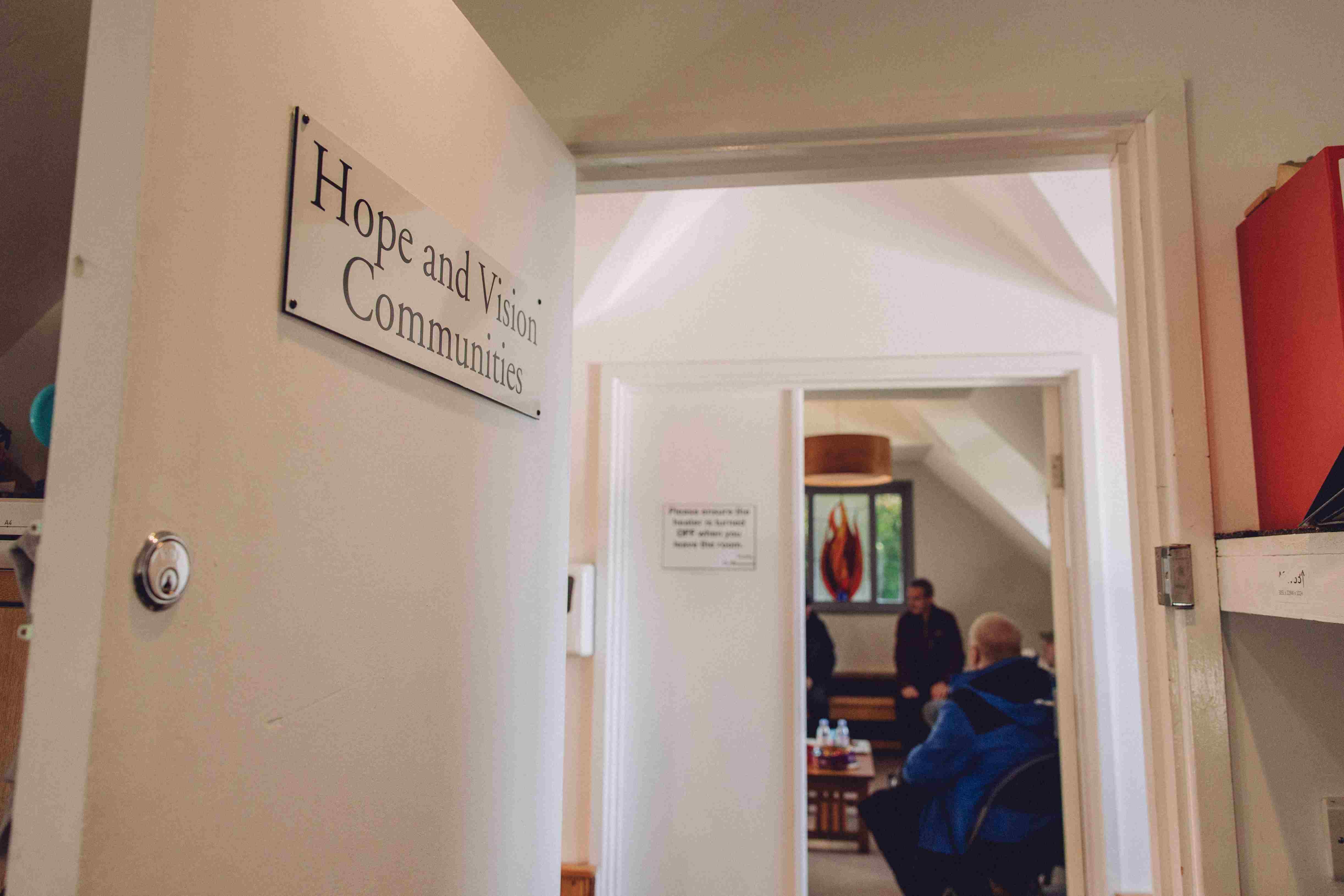
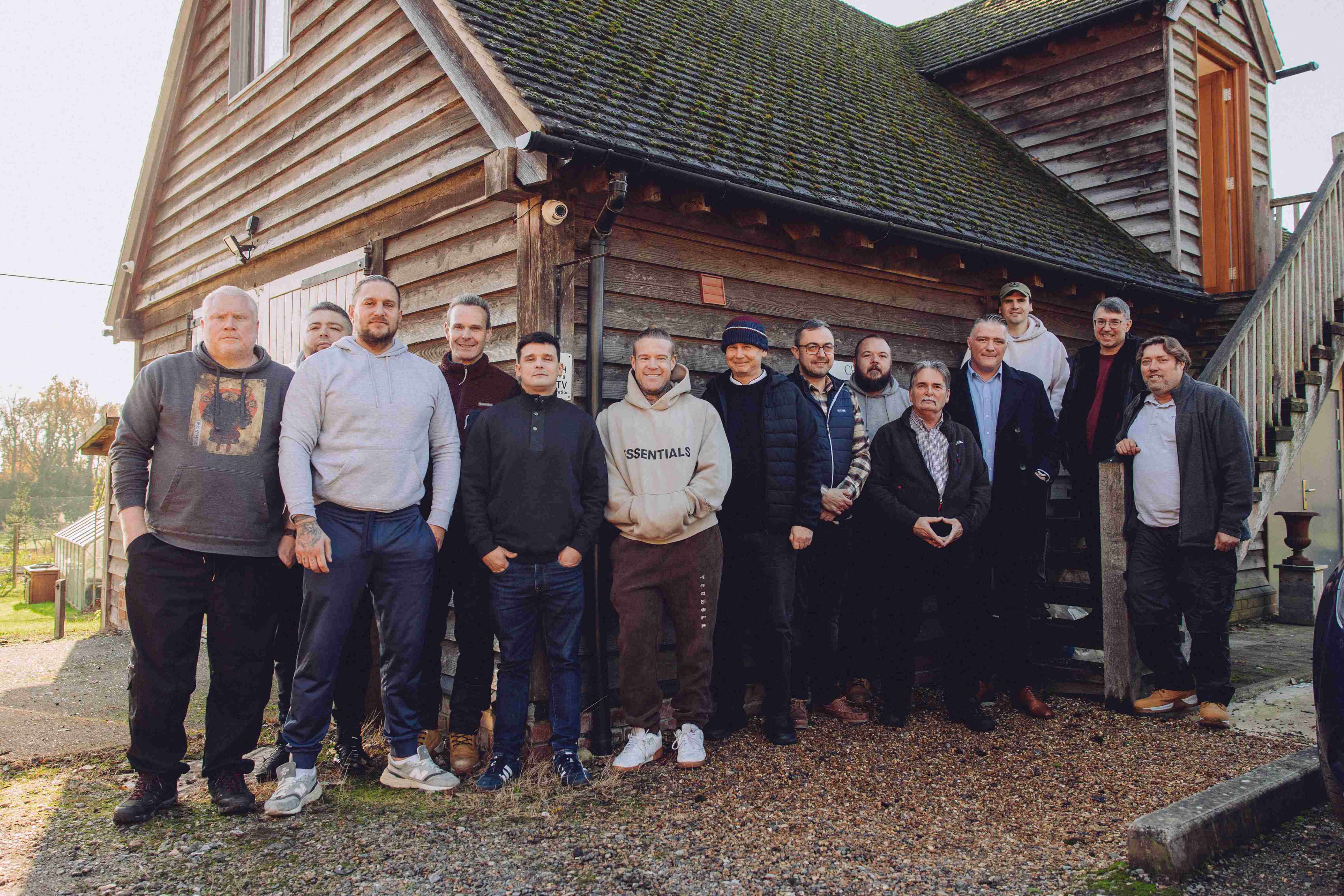
I'm excited about growing our staff team and being able to resource them better. The grant from Lloyds Bank Foundation enables us to employ more people to focus on specific areas such as finance, administration and communications rather than one or two people doing everything. We will be able to become more efficient and effective when the weight of responsibility is distributed.
I'm also really excited about the development of other Hope and Vision communities. The vision has never been just to do it here. We know that if our service is needed around this treatment centre, it’s needed at others across the country. The need is so great and the system is so overwhelmed, and unable to cope with it. There's a housing problem, an addiction problem, a mental health problem, and a cost of living crisis problem. Systemically, you can't treat any one of those things on their own, you need a holistic, whole-system approach. We know that our model works, and we want to explore how we can replicate that in other places over the next few years.
Coming to Hope and Vision has been the best thing I’ve ever done. Early in my recovery, I was looking to fix myself and running on self will, and without realizing it, I didn't have a solid foundation of recovery. Where I'm at now, materially, professionally, I’m starting from scratch, but it's from a solid foundation. Now, recovery comes first for me. It really has just saved my life and it's a great little community. We all look after each other and it’s good to be here.
- Joe
Hope and Vision has given me the space and the opportunity to grow and develop. It's given me the opportunity to make mistakes, and then in a very loving and compassionate way to be guided and supported in how to navigate things. It’s helped me learn life skills like paying my bills on time, going to work properly, without having to be fearful of the outside world. It’s given me that space, that hub and that community to build me up and develop me and grow me into being a responsible adult.
- Myron
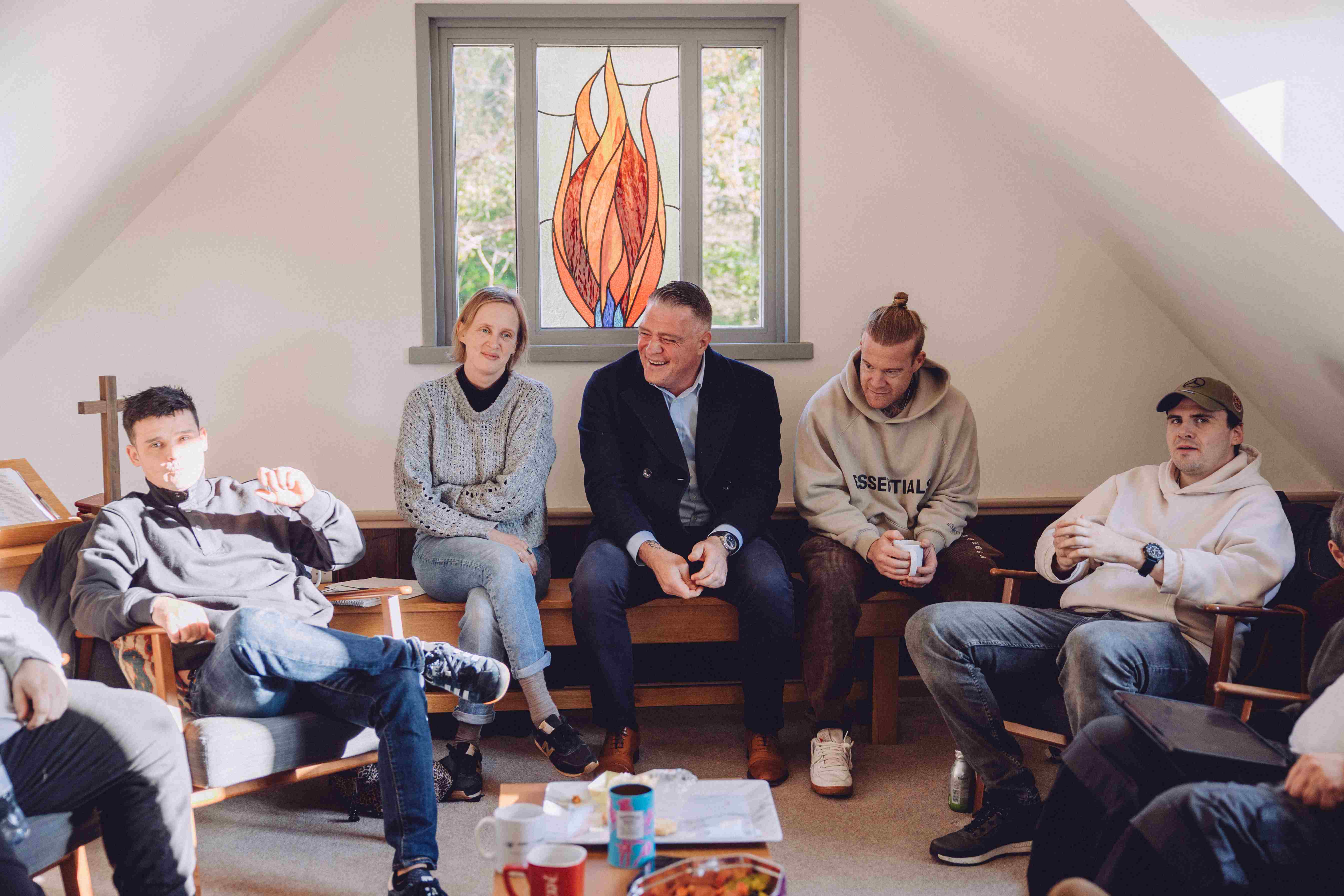
Find out more about Hope and Vision Communities by visiting their website: hopeandvision.org.uk